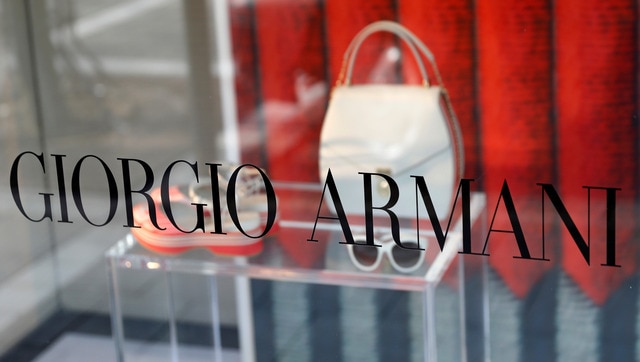Two luxury ‘Made in Italy’ handbag brands are facing scrutiny after reports of alleged labour exploitation came to light. Probes by prosecutors in Milan, Italy’s fashion capital, have revealed that the luxury giants Dior and Giorgio Armani pay a small sum to produce handbags that retail for lakhs of rupees.
Milan prosecutors are investigating the supply chain of about a dozen fashion brands this year. Here’s what we know about the probe involving units of luxury LVMH, which owns Dior, and Giorgio Armani.
The real cost of luxury bags
The investigation by prosecutors shows that a small manufacturer got as little as 53 euros (Rs 4,779) to make a handbag for Dior. This is exclusive of the cost of raw materials such as leather. The fashion giant sold these items in shops for 2,600 euros (Rs 2.4 lakh), Reuters reported last month.
Earlier probe had found that sub-contractors paid workers 2-3 euros (Rs 180-270) an hour for a 10-hour work day to manufacture handbags. These were bought by Armani suppliers for 93 euros (Rs 8,386), re-sold to Armani for 250 euros (Rs 22,543), and were sold to customers for 1,800 euros (Rs 1,62,311), according to documents seen by Reuters.
Worker exploitation charges
Local factories in Italy that produce handbags and leather goods for
Dior
and Armani have been found to exploit labour, The Wall Street Journal has reported citing an investigation by Milan prosecutors.
They have alleged staff were working in illegal conditions. The prosecutors said most of the workers were from China.
As per a Reuters report, workers were employed for extra hours, working until night and during holidays. Some of the staff were sleeping at their workplace, did not have regular contracts and two were found to be illegal immigrants.
Inspections by Italian police in March and April revealed workers were subjected to “hygiene and health conditions that are below the minimum required by an ethical approach,” the WSJ reported citing the 34-page court order.
The report also says workers were made to operate machines from which safety devices had been removed to increase output.
As per the court ruling, one of the subsidiaries of Armani, GA Operations, hired two subcontractors, which went on to recruit several Chinese-owned subcontractors in Italy.
A prosecution document alleged Dior didn’t adopt “appropriate measures to check the actual working conditions or the technical capabilities of the contracting companies”, Reuters reported.
Manufacturing units of Dior and Armani have been put under judicial administration for a year. Milan’s court of justice has proposed that luxury firms should increase checks on suppliers to ensure they respect labour laws.
Armani responded to the controversy, saying it had “control and prevention measures in place to minimise abuses in the supply chain” and was “collaborating with the utmost transparency” with authorities, the WSJ reported.
Common practice
Italy makes for 50-55 per cent of the global
luxury goods
output, according to consultancy Bain. While luxury brands decide product design and development, they often outsource production to suppliers.
Italy’s prosecution said that violating labour rules in the fashion world was “a generalised manufacturing method” aimed at boosting profits.
“It’s not something sporadic that concerns single production lots, but a generalised and consolidated manufacturing method,” court documents said, according to Reuters.
Fabio Roia, the president of Milan’s court system, told Reuters, “The main problem is obviously people being mistreated: applying labour laws, so health and safety, hours, pay. But there is also another huge problem: the unfair competition that pushes law-abiding firms off the market.”
“If we managed to eradicate labour exploitation, profits would diminish, but there could be legal competition among businesses.”
Italian laws say that brands outsourcing production are responsible for implementing adequate checks on suppliers.
“When we step in, business owners always say it’s impossible to make checks on sub-contractors, but if that’s true one could for example insert a clause in a contract saying that direct suppliers can’t hand out the work further,” Roia said.
With inputs from agencies
This post was originally published on this site be sure to check out more of their content.









